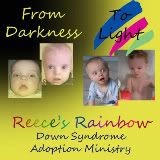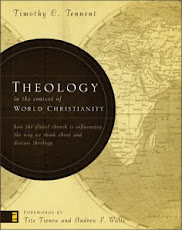Book Review - TOTAL CHURCH
TOTAL CHURCH by Tim Chester and Steve Timmis
The thesis can be found on the cover of the book as the subtitle: A Radical Reshaping around Gospel and Community. They propose that "church" should be focused on the Gospel and should be done in the context of community. As they state:
This book argues that two key principles should shape the way we "do church": gospel and community. Christians are called to a dual fidelity: fidelity to the core content of the gospel and fidelity to the primary context of a believing community. Whether we are thinking about evangelism, social involvement, pastoral care, apologetics, discipleship, or teaching, the content is consistently the Christian gospel, and the context is consistently the Christian community. What we do is always defined by the gospel, and the context is always our belonging in the church. Our identity as Christians is defined by the gospel and community.
This idea seems commonsensical as you read the New Testament, but the Western Church has lost this shape and reshaped itself primarily around the mold of programs, meetings, and buildings. The wake up call of these authors needs to be heeded by the American church.
Another theme that runs throughout this book is missional living in our communities. They challenge all Christians to live as missionaries in their communities, because God has sovereignly placed each one of us in our exact location. This missional living means doing the same cultural exegesis, lifestyle sacrifice, and community invasion that a foreign missionary undertakes. Many stories from members of their church are included to support their claims and lend credibility to this model (although, they would hate that I just called it a model). These stories not only prove that this way of "doing church" is more than simply an idealistic model, but also put flesh on the principles espoused throughout the book.
I could find a few minor details that I disagree with or find concerning, but those instances were few, far between, and ultimately overshadowed the grand message of this book. Timmis and Chester are calling the church to reconsider the definition and purpose of the church, and they have done much of the work for us. I cannot think of a church leader, pastor, or member who would not benefit from reading this book. Every pastor should be promoting this book to his flock. If I were a pastor, I would make this book mandatory reading for the leaders of the church.
The primary complaint I have heard concerning this book, is that their model is idealistic and "won't work in my situation or church." The people that make this comment probably also find the Bible too idealistic and, in their minds, Scripture probably won't work in their situation. This pervading mindset explains why the American church has strayed so far from the New Testament picture of the organized church. It seems that most pastors believe that being biblical won't work, but being entertaining, materialistic, and timid will work. This explains what we see whenever we walk through the doors of most church buildings. The disturbing part is that no one has told these pastors and leaders that what they are doing in the name of pragmatism isn't actually working. They aren't building the church, they are building buildings and community programs. They aren't even what the Bible defines as pastors/elders, they are country club directors. I am begging everyone to read this book and compare it with the New Testament picture of the church. Don't trust these two men anymore than you trust your local megachurch pastor; trust Scripture.




















